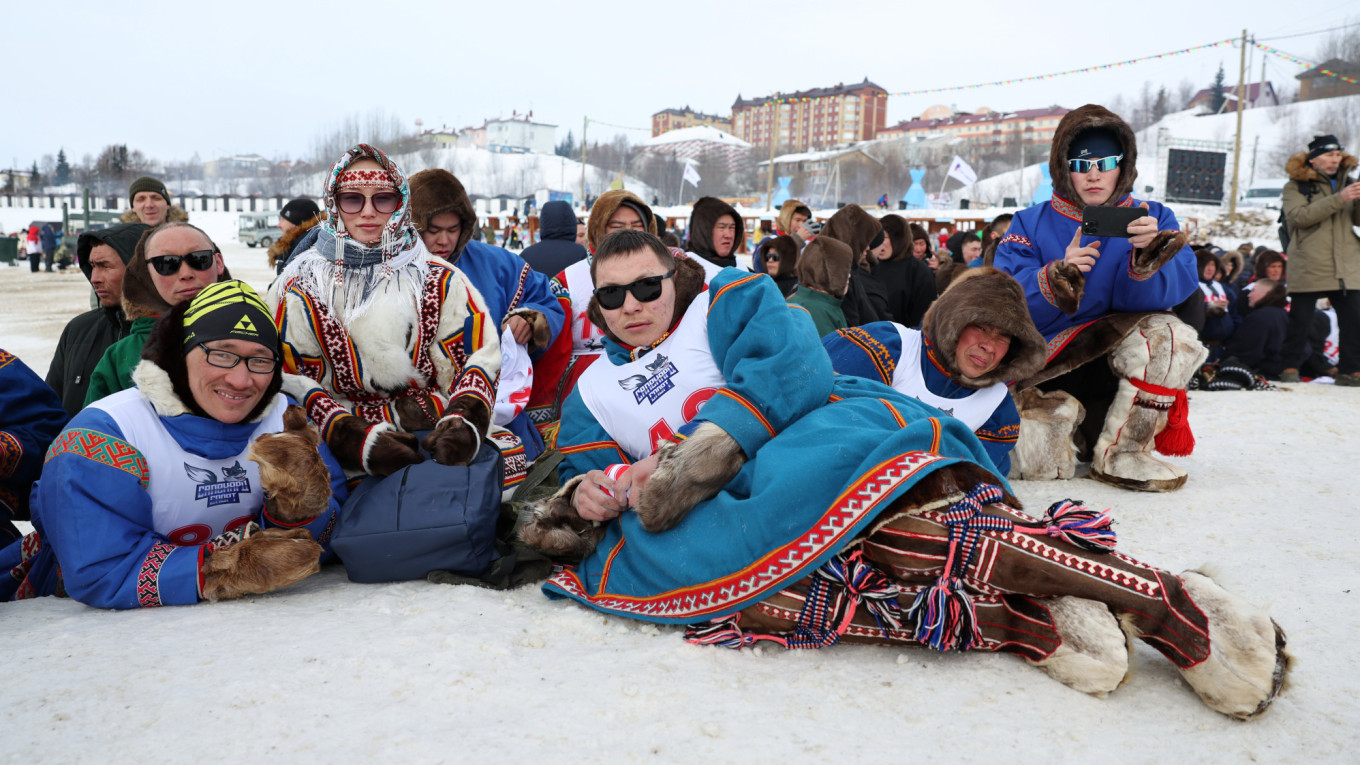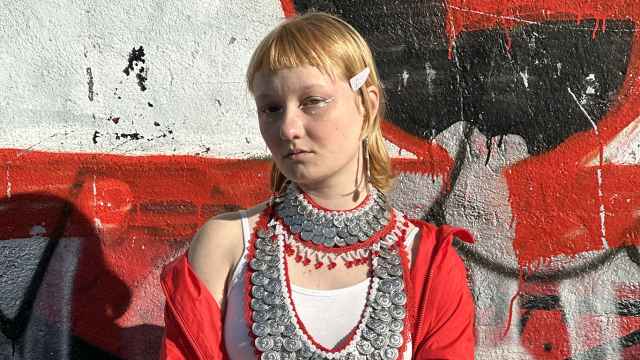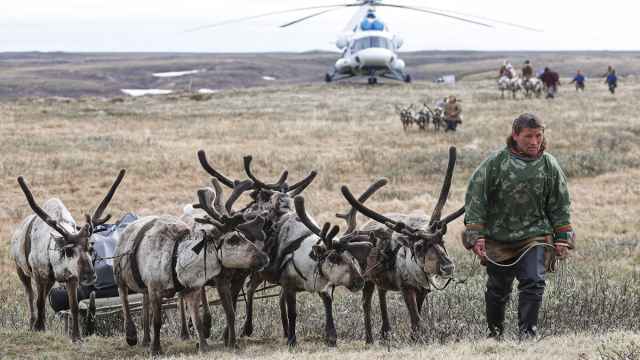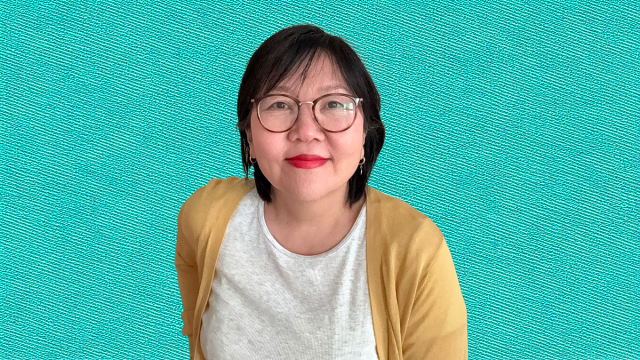Hello and welcome to this week’s edition of Regions Calling, your guide to developments beyond the Russian capital from The Moscow Times.
President Vladimir Putin last week declared the creation of two new holidays dedicated to Indigenous minority peoples and the languages of the people of Russia.
In this edition, we unpack the Kremlin’s motives and whether the holidays will offer any tangible benefits to the hundreds of Indigenous and minoritized communities living in Russia.
But first, the latest news from the regions:
The Headlines
Restrictions on mobile internet access were introduced in parts of the central Ulyanovsk region for the duration of Russia’s war in Ukraine, marking the first permanent internet blackout in the country.
At least 20 Russian regions, including Ukraine-bordering Bryansk and Kursk, are forming special military units consisting entirely of military reservists to guard strategic infrastructure. In the republics of Bashkortostan and Tatarstan, reserve-staffed units will be tasked with countering Ukrainian drone attacks against local oil refineries and petrochemical sites.
In the North Caucasus republic of Dagestan, five people were killed when a private helicopter crashed into a house near the coast of the Caspian Sea last week. Preliminary investigation results suggest the fatal crash was caused by pilot error.
Regional deputies in the Siberian republic of Buryatia on Thursday passed a controversial law dismantling the two-tier system of local self-government despite opposition from a handful of local officials. Meanwhile, residents of the neighboring Irkutsk region are fighting against a similar change with petitions and video addresses to Putin.
In the southern city of Krasnodar, activists are waging a campaign to oust Mayor Yevgeny Naumov over his support for the construction of an Orthodox cathedral in a protected natural area.
The Spotlight
Kremlin’s New Indigenous Holidays a ‘Distraction from Systemic Issues,’ Activists Say
President Vladimir Putin last week signed decrees creating two new state holidays: the lengthily named Day of the Languages of the People of Russia and Day of the Indigenous Minority Peoples of Russia.
The Kremlin says these two celebratory dates will aid its efforts to preserve Russia’s linguistic diversity, as well as “the traditional way of life and unique cultures” of nations it recognizes as Indigenous.
But independent Indigenous experts and activists told The Moscow Times that Moscow is using the holidays to mask its systemic russification and erasure of Indigenous identities, as well as to reassert control of the narrative about its many Indigenous communities as independent movements gather momentum.
‘Slap in the face’
“This symbolic gesture is…a distraction from systemic issues,” said Khandama Tudebei, a language activist and teacher of Buryat, a Mongolic language native to southeastern Siberia.
“Against the backdrop of war, military mobilization and demographic decline, it reinforces the propagandistic image of ‘people’s unity’ while simultaneously narrowing the space for political expression of language and cultural activists,” she told The Moscow Times.
Tudebei dubbed the Kremlin’s decision to honor hundreds of languages native to the country with a special day “an illusion of care” that can hardly make up for the lack of Indigenous language classes and schooling in Indigenous mother tongues across the country.
Russia is home to 155 living and 15 extinct languages, according to the Linguistics Institute of the Russian Academy of Science.
The country’s most recent census in 2021 showed that nearly all of them face rapidly declining numbers of speakers.
“Preserving languages requires systematic support: training teachers, publishing textbooks, creating films and multimedia, as well as independent media projects in them, not adding new ‘dates’ to the calendar,” said Tudebei, noting that most existing government programs for minority languages have proven superficial and impractical for language learners and teachers.
The newly introduced Day of the Languages of the People of Russia will be celebrated annually on Sept. 8, coinciding with the birthday of renowned Soviet-era Avar poet Rasul Gamzatov.
“He considered two languages as his native: Avar, in which he created his works, and Russian, through which his works gained worldwide fame,” Putin said of Gamzatov earlier this year.
The 1968 Russian translation of Gamzatov’s Avar-language poem “The Cranes” became one of the most recognizable Russian ballads about World War II. Though reportedly inspired by his visit to the Hiroshima Peace Memorial, the poem is now used to aid Russia’s propaganda-charged yearly celebrations of the Soviet victory in World War II.
“Linking this day to Rasul Gamzatov’s birthday is a slap in the face for all Avars and other Indigenous people of Dagestan,” said Avar activist Zarema Gasanova.
“It is yet another attempt by Russia to appropriate a foreign culture, a foreign poet and distort the meaning of his work,” she said, noting that though Gamzatov’s works were widely translated into Russian, Avar was the sole mother tongue he sang of in his poems.
Avar, a Northeast Caucasian language recognized as one of the official languages in the republic of Dagestan, is classified as “vulnerable” by UNESCO and has lost more than 60,000 speakers between Russia’s two latest censuses.
Global isolation
In addition to eschewing the UNESCO-established International Mother Language Day on Feb. 21, Moscow also chose to forgo celebrating the UN’s World's Indigenous Peoples Day marked on Aug. 9.
Instead, Russia’s new Day of the Indigenous Minority Peoples will coincide with the adoption of the national law on Indigenous peoples' rights on April 30, 1999.
“This move is meant to show the international community and global actors connected to the Indigenous agenda… that Russia has its own definition of Indigenous peoples and has no aim to operate within the international framework,” said Dr. Ekaterina Zibrova, an associate researcher at The Wits Center for Diversity Studies in Johannesburg.
Russia is home to more than 180 ethnic groups, most of whom inhabited the territories they live in today before and during Russian colonization.
Yet the vast majority of these groups are denied indigeneity under Russian law. Only minority groups of less than 50,000 people who live in parts of the Far North, Siberia and the Far East and “maintain a traditional lifestyle” are recognized as Indigenous by Russia.
Dedicating a holiday to communities that comprise less than 1% of the country’s population “is a reproduction of Russia’s isolationist political course” and “a way to self-validate” its distorted view of indigeneity, Zibrova said.
Viktoria Maladaeva, a prominent Buryat activist and founder of the Indigenous of Russia collective, warned that the holiday — and the government funds allocated to it — “will be misappropriated or used to produce more propaganda materials instead of actually helping Indigenous people.”
Zibrova noted that both holidays were introduced less than a year after Moscow labeled hundreds of independent Indigenous groups as “terrorist.” The move marked yet another attempt by Moscow to turn any public expression of non-Russian ethnic identities into a state security issue, according to Zibrova.
“I view these new holidays as a part of an ongoing and fairly successful process of controlling the narrative about Indigenous peoples [by Moscow],” Zibrova told The Moscow Times.
Avar activist Gasanova, in turn, said that the Kremlin’s decision is a reaction to the work of the many decolonial and Indigenous rights movements that have sprung up since Russia’s invasion of Ukraine.
“Introducing symbolic holidays like this is something of a countermeasure that aims to diminish the work of Indigenous activists,” she told The Moscow Times.
Buryat language activist Tudebei voiced a similar sentiment.
“This is a response to the growing national self-awareness and self-organization of Indigenous peoples, who are increasingly asserting their rights to language, land and resources,” she said.
Photo of the Week
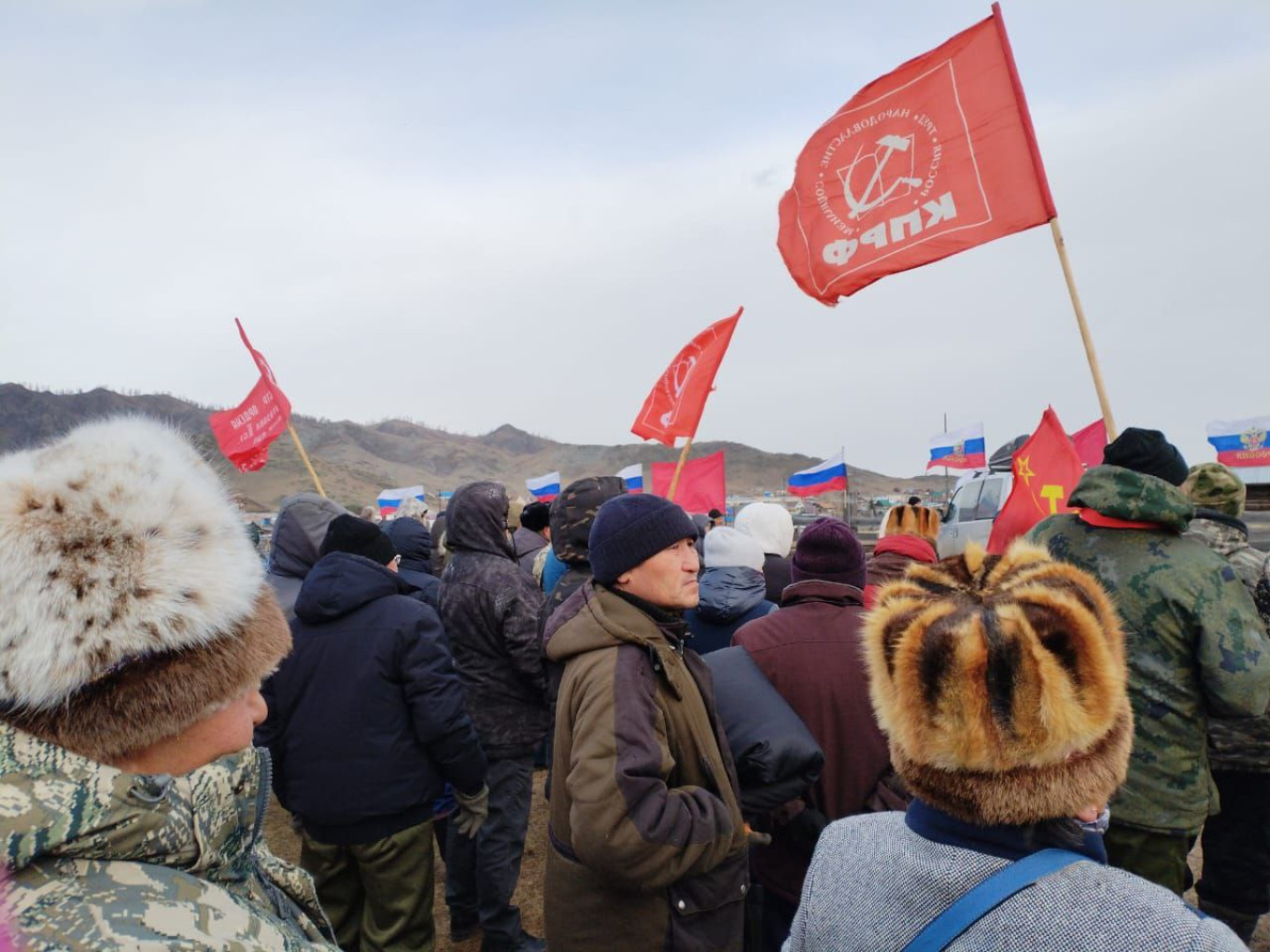
Dozens gathered in the small village of Ust-Kan in the republic of Altai on Friday to mark the anniversary of the 1917 October Revolution.
Backed by local Communist Party members, the gathering was a rare authorized rally in the southern Siberian republic which has witnessed widespread arrests of activists in the wake of mass protests against an unpopular self-governance reform.
Also last week, a local court sentenced lawyer Dmitry Todoshev, one of the chief campaigners against the reform, to 12 days behind bars on charges of defying police orders.
And on Sunday, prominent activist Aruna Arna’s pre-trial detention was extended until Jan. 15, supporters reported. Arna, often described in the media as the “leader of Altai protests,” was added to Russia’s registry of “terrorists and extremists” earlier this year.
Culture & Entertainment
- “Memory,” a documentary film about Russia’s war on Chechnya by director Vladlena Sandu, will be shown at the International Documentary Festival in Amsterdam from Nov. 14-22. More information about the festival and showtimes is available here.
- Yelena Yegorova, a 28-year-old model from the republic of Sakha, is representing Serbia at the ongoing Miss Universe Pageant in Thailand. The new Miss Universe will be crowned on Nov. 21.
A Message from The Moscow Times:
Dear readers,
We are facing unprecedented challenges. Russia's Prosecutor General's Office has designated The Moscow Times as an "undesirable" organization, criminalizing our work and putting our staff at risk of prosecution. This follows our earlier unjust labeling as a "foreign agent."
These actions are direct attempts to silence independent journalism in Russia. The authorities claim our work "discredits the decisions of the Russian leadership." We see things differently: we strive to provide accurate, unbiased reporting on Russia.
We, the journalists of The Moscow Times, refuse to be silenced. But to continue our work, we need your help.
Your support, no matter how small, makes a world of difference. If you can, please support us monthly starting from just $2. It's quick to set up, and every contribution makes a significant impact.
By supporting The Moscow Times, you're defending open, independent journalism in the face of repression. Thank you for standing with us.
Remind me later.



